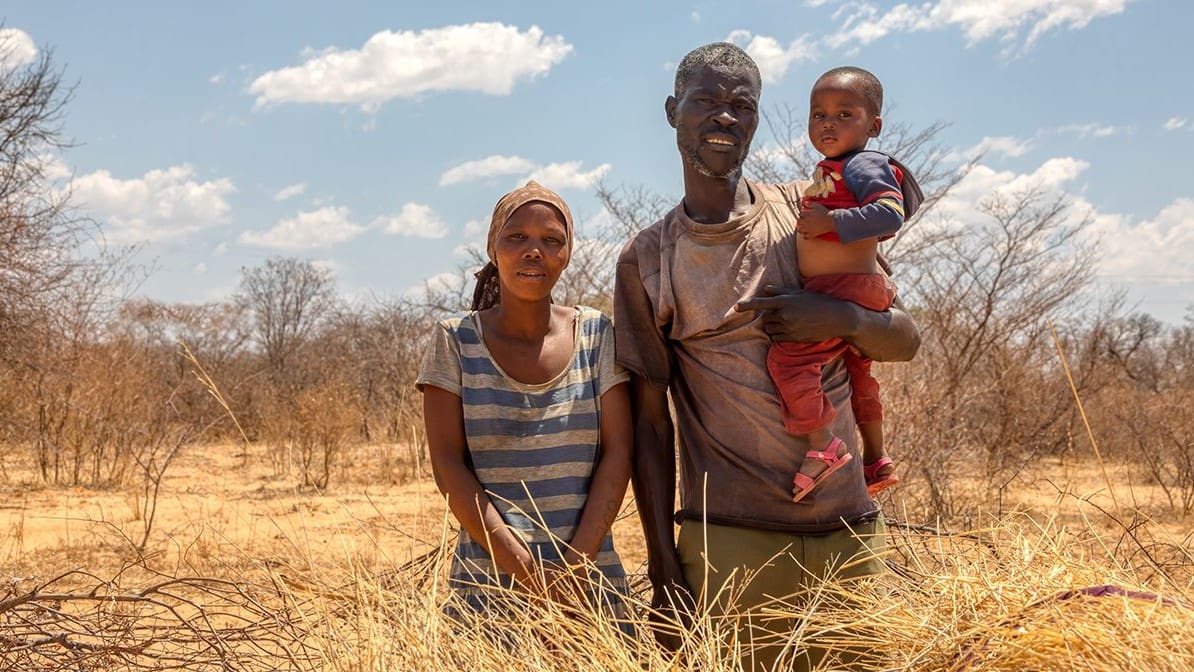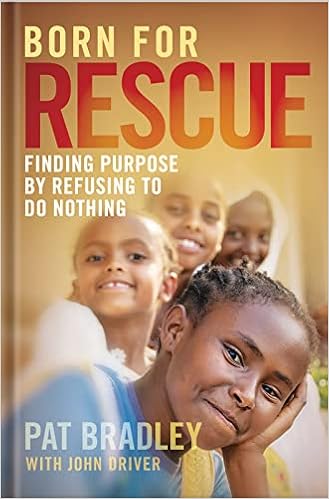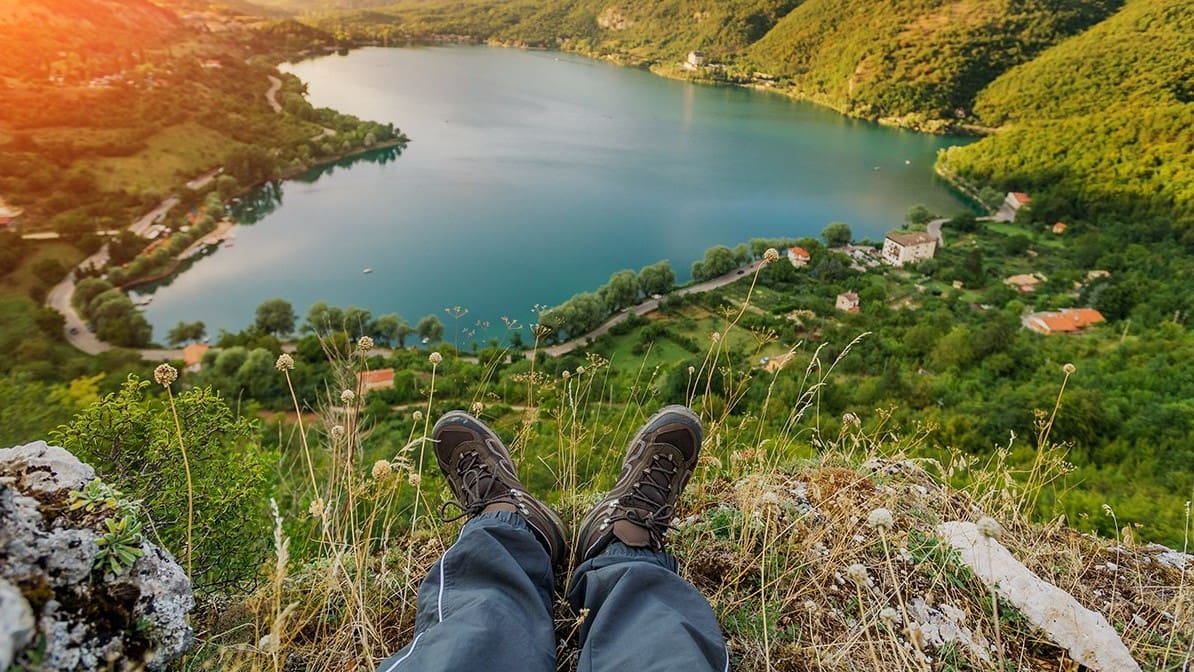- Home
- Spiritual Life
- Looking Back Over My Shoulder

Looking Back Over My Shoulder
 Excerpt taken from Chapter 1 “Doing Nothing” of Born for Rescue: Finding Purpose by Refusing to Do Nothing by Pat Bradley
Excerpt taken from Chapter 1 “Doing Nothing” of Born for Rescue: Finding Purpose by Refusing to Do Nothing by Pat Bradley
I first began traveling in the late 1980s with the purpose of serving the persecuted church around the world. There are some stories about these travels that I will share later, but for now, let’s just say that I was still working in marketing and advertising and would use my vacation time to go to other countries to smuggle Bibles and other Christian contraband across their borders. I would also spend time with the underground churches and people who were facing persecution.
Things began to change for me around the year 2000. By this time, I served on the board for International Christian Concern (ICC), an incredible organization that serves persecuted Christians around the world. We began receiving what we considered credible reports about what was happening in southern Sudan and the atrocities of a civil war raging there. We decided to take a fact-finding trip to see for ourselves what God might be calling us to do there.
We flew from Washington, D.C., to Kampala, Uganda. From there, we drove about fourteen hours to the Sudanese border. The car must have been more than 110 degrees—unbearably hot, even with the windows rolled down. But things got worse as soon as we crossed the border. The conditions of the roads immediately deteriorated, so much so that it took us about three and a half more hours to reach the military checkpoint that was only five miles across the border. Four hours to go five miles.
That was my introduction to Sudan: nothing here was easy.
Over the next two weeks, we began meeting with local government, religious, and military leaders to hear their stories about the unfathomable terrors occurring all around them. The northern government regime known as the Government of Sudan (GOS) had been relentlessly attacking villages in the south. In addition to their own army, they were also funding various militia groups to carry out similar attacks.
They were opposed by the Sudanese People’s Liberation Army (SPLA), but in most cases the GOS was attacking, looting, and destroying villages where there was no SPLA presence. In other words, this was not just a war between soldiers—this was ethnic cleansing targeting civilians. They had already killed an undetermined number of unarmed villagers, often with the help of artillery, bombs, and helicopter gunships.
Their modus operandi was to attack these villages at night, rape and kill the women, kill the men, and sometimes take the children captive to be sold into slavery. At times, they would just wipe out the entire village with an unimaginable ruthlessness devoid of basic decency or humanity. The stories we heard disturbed me to my very core in ways I never thought possible. We crisscrossed South Sudan, moving in and out of active war zones and hearing chilling firsthand accounts.
Our primary objective was to evaluate the conditions that the survivors were living in so we could formulate a plan to help. After canvassing the area for two weeks, we couldn’t even call their situation one of mass poverty because the term “poverty” wouldn’t do it justice.
On our last day in the country, we came upon a group of about seventy men, women, and children. Their village had been attacked the night before, and they were the only survivors. There were numerous elderly people among them who were in bad shape. Many of the villagers’ clothes were torn and ripped from running through the jungle bush—and their bodies were cut up, bleeding, and injured.
It was about 120 degrees that day, and this group of survivors huddled together under the fleeting shade of a small copse of trees. The shade stretched no wider than several hundred square feet, and they crammed together in it, just trying to find some relief from the blistering heat. Emotionally, they were reeling from the devastation. They had lost loved ones. Children. Husbands. Fathers. Wives. Mothers.
I put myself in their shoes—and I was never the same.
These people were hundreds of miles from food, water, and shelter, and we had absolutely nothing to give them. It was really an accident that we had come across them in the first place. I have never felt so helpless. Even if we could have walked to get water for them, they didn’t have any cans or containers to store it. No plates or cups. No clothes. No blankets. No phones. Nothing. No one knew they were there. No one was coming to help. They were literally standing in the middle of nowhere, still looking back over their shoulders in case their attackers might emerge again at any moment.
And we had to leave them in this state of being—we had to go. `
What happened next is something I remember like it was yesterday. We got into our car, and I was sitting in the back seat on the passenger side. As we started to pull away, and they were looking back over their shoulders in fear, I looked back at them over my shoulder, in turmoil.
A strong, undeniable thought entered my mind: doing nothing is no longer an option.
Instantaneously, I knew exactly what this meant. I knew that my life was about to change. Up to this point, I had my business and family life, and then my ministry life that I engaged in during vacations. But this was the beginning of God speaking to my heart and saying that He was changing the focus of our ministry from the persecuted church to the imminent, felt needs of people in serious trouble. I knew that this meant providing food, water, shelter, medical care, and whatever else was needed to forgotten people huddling in completely unseen places around the world with no hope of anyone coming to their aid. God saw them, and now He had allowed me to see them too—and everything had changed.
This was a traumatic exposure for me, though it was nothing compared to the trauma those poor people had experienced. I was completely overwhelmed with what I had seen and heard. I was so angry that people could do this kind of thing to other people. I also had thoughts swirling in my mind of all the things that had to be done to begin organizing a plan to provide relief and aid to these places of greatest need.
I shut down. My mind, emotions, and entire being were so assaulted that I became unable to do anything else for a while.
In fact, after I got home, I didn’t speak for almost two weeks—not to my wife, my children, or the people who worked for me at the ad agency. Everyone thought I had lost my mind. No one knew what was going on—I didn’t even quite understand what was going on. Looking back, I think I was just processing everything I had seen. I had never before seen dead people. I’d never heard about babies being slammed up against trees, and now I had listened to the stories firsthand from mothers who had witnessed it happen to their own children. I had never seen children with their limbs blown off from bombs.
It was so much—and now maybe you understand why I haven’t always been keen on talking about every thing I have seen. Regardless, God flipped a switch in me, and though I was completely overwhelmed by the thought of what I should do next, I knew beyond a shadow of a doubt that doing nothing was no longer an option.
…
Order your copy of Born for Rescue: Finding Purpose by Refusing to Do Nothing by Pat Bradley
To learn more about Crisis Aid International, contact them at PO Box 510167, St. Louis, MO 63151, or call them at 1-888-740-7779, or visit their website at www.crisisaid.org.
Trending Now
Sign up today for your Inspiration Today Daily Newsletter
Supercharge your faith and ignite your spirit. Find hope in God’s word. Receive your Inspiration Today newsletter now!
Pat Bradley
In September 2000, Pat Bradley witnessed the results of the genocide in South Sudan first hand and knew at that moment "doing nothing" was not an option. His helplessness turned into action as he returned to the United States to raise money for starving people in "no-go zones" where starvation, disease, and danger are a part of everyday life. He soon returned to provide bags of rice to Sudanese people in need. A humble beginning turned into life-saving efforts for people in crisis living in eleven different countries. In 2002, Crisis Aid was officially incorporated. Today, Crisis Aid currently concentrates its efforts in East Africa and the United States. Once Pat took that first step to "do something" others quickly joined, enabling Crisis Aid to deliver a wide variety of resources over the years. Together with its partners, Crisis Aid has provided more than 17.8 million pounds of food, served 2.6 million adults and malnourished children, and 1,378 sex trafficking victims helped, the youngest being 4 years of age. Learn more at CrisisAid.org.
Related Articles
March 2, 2026
How to Move Mountains: 3 Biblical Keys for Stronger Faith
When frustration feels like a wall you can’t break through, it’s natural to wonder what to do next.…
March 1, 2026
Chased by God’s Blessings—How to Attract God’s Blessings and Walk in His Favor
The key to God’s amazing turnaround plan for you to walk in His favor in every area of life. Have…
February 27, 2026
Friendship with Jesus: Finding Joy in the Creator
True joy begins when we know Jesus not only as Savior, but as Creator—and learn to walk with Him in…
February 25, 2026
Finish Strong with a Kingdom Mindset
For if you keep silent at this time, relief and deliverance will rise for the Jews from another…
Next Steps To Strengthen Your Walk
Inspiration Today Newsletter
Supercharge your faith and ignite your spirit. Find hope in God’s word. Receive your Inspiration Today newsletter now!
Christian Articles
Find articles to strengthen your walk and grow your faith. We have a wide range of topics and authors for you.
Submit A Prayer Request
We are here for you. Simply click on the button below to reach us by form, email or phone. Together we will lift our hearts and voices with you in prayer.





